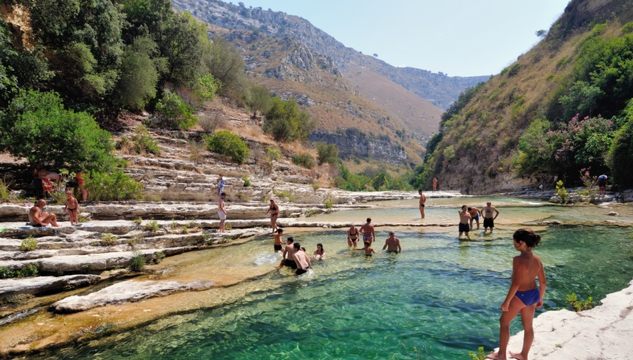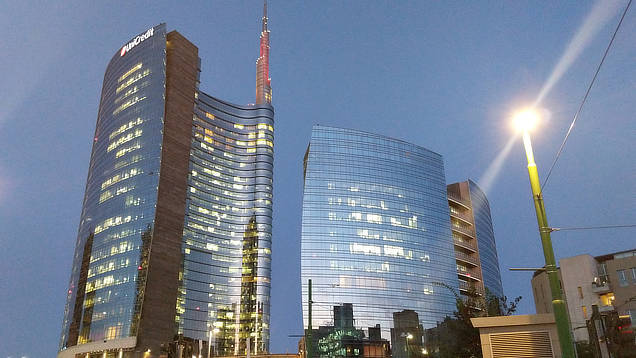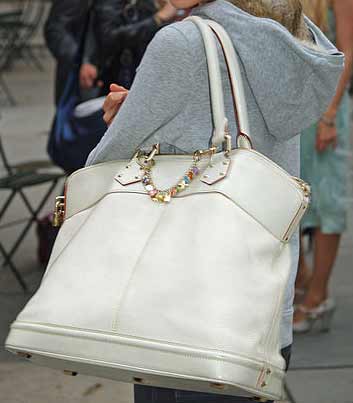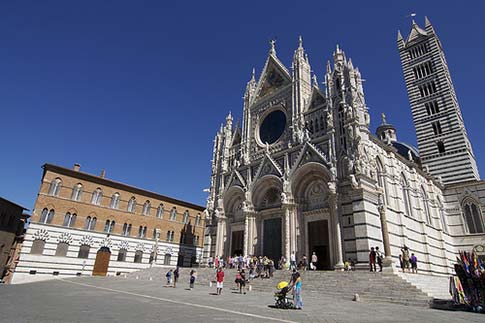Alberobello, a charming town located in the Puglia region of southern Italy, is not only famous for its unique trulli houses but also for its vibrant festivals and rich traditions. These celebrations and customs provide a glimpse into the rich cultural heritage of the Puglian people.
The town of Alberobello hosts a variety of traditional festivals throughout the year, each with its own significance and rituals. Some notable festivals include:
1. The Feast of St. Cosmas and Damian: This religious festival honors the patron saints of Alberobello and is celebrated with processions, music, and traditional food.
2. The Feast of St. John the Baptist: This festival, held on June 24th, includes religious processions, fireworks, and lively music to commemorate the birth of St. John the Baptist.
3. The Feast of the Assumption: Celebrated on August 15th, this festival pays tribute to the Virgin Mary and features processions, traditional costumes, and delicious local delicacies.
4. The Carnival of Alberobello: This colorful carnival, held in the winter season, brings the town to life with parades, costumes, music, and dance.
In addition to the festivals, Alberobello is steeped in traditional customs that reflect the local culture. Some of these traditions include:
1. La Notte della Taranta: This musical event celebrates the traditional dance and music of Puglia, known as the “Pizzica.” It attracts both locals and tourists alike and is characterized by energetic performances and a vibrant atmosphere.
2. Festa di San Rocco: This religious procession honors St. Rocco, the patron saint of protection against diseases. It involves a procession through the town, accompanied by prayers and traditional songs.
3. Processione dei Misteri: Held on Good Friday, this solemn procession reenacts the Stations of the Cross and is a deeply religious event where participants dress in traditional clothing and carry religious sculptures.
These festivals and traditions play a significant role in celebrating Puglian culture and preserving its rich heritage. They showcase various aspects of Puglian life, including cuisine, folklore, music, dance, and traditional clothing. The region’s culinary delights, such as orecchiette pasta, focaccia bread, and delicious seafood specialties, are an essential part of these celebrations.
Preserving and promoting Puglian festivals and traditions is crucial for the local community. Efforts are made by the community to organize and participate in these events, ensuring that they continue to thrive and remain an integral part of Alberobello’s cultural identity. The festivals and traditions not only hold cultural significance but also contribute to the tourism industry, attracting visitors from around the world who are eager to experience the unique customs and joyful celebrations.
Collaboration with local authorities and organizations further strengthens the preservation of Puglian festivals and traditions. Together, they work to safeguard and promote these cultural treasures, organizing exhibitions, workshops, and events that showcase the traditions to a broader audience.
In Alberobello, festivals and traditions are a testament to the rich cultural heritage of Puglia. By participating in these celebrations and embracing the customs, both locals and visitors can immerse themselves in the vibrant spirit of Alberobello and experience the beauty of Puglian culture for themselves.
Traditional Festivals in Alberobello
Get ready to immerse yourself in the vibrant traditions of Alberobello as we explore the lively world of traditional festivals. From the captivating Feast of St. Cosmas and Damian to the joyous celebrations of St. John the Baptist, the enchanting Feast of the Assumption, and the lively Carnival of Alberobello, each sub-section will transport you to a unique cultural experience. So buckle up and get ready to discover the intoxicating charm of Alberobello’s traditional festivals.
The Feast of St. Cosmas and Damian
The Feast of St. Cosmas and Damian is one of the traditional festivals celebrated in Alberobello, Puglia. It honors the patron saints of the town, St. Cosmas and Damian. The Feast of St. Cosmas and Damian takes place on September 26th each year and is marked by religious processions, music, dancing, and delicious local food. The townspeople come together to pay homage to these saints, who are believed to have performed miracles. The festival is a vibrant display of Puglian culture and offers a unique opportunity to experience the traditions and customs of the region. To fully appreciate The Feast of St. Cosmas and Damian, visitors can join in the festivities, taste traditional dishes like orecchiette and pasticciotto, and immerse themselves in the lively atmosphere of the celebration.
The Feast of St. John the Baptist
The Feast of St. John the Baptist is one of the traditional festivals celebrated in Alberobello, Italy. During this event, the local community honors the patron saint of the city with various religious and cultural activities. The feast typically includes processions, church services, and feasts with traditional Puglian cuisine. The festival provides an opportunity for locals and visitors to come together, celebrate their shared heritage, and enjoy the lively atmosphere. The Feast of St. John the Baptist is an important part of preserving and showcasing the rich traditions and cultural heritage of Alberobello.
The Feast of the Assumption
Feast of the Assumption is a significant traditional festival celebrated in Alberobello, Italy. It takes place on August 15th every year and honors the assumption of the Virgin Mary into heaven. The festival includes religious processions, music, dance, and delicious food. Locals and tourists gather to witness the magnificent parade of the statue of the Virgin Mary through the streets, accompanied by lively music and traditional costumes. The Feast of the Assumption is a vibrant cultural event that showcases the deep-rooted traditions and spiritual beliefs of the people of Alberobello. Pro-tip: Don’t miss the opportunity to try local delicacies such as the traditional “Panzerotti” during this festive celebration.
The Carnival of Alberobello
The Carnival of Alberobello is a vibrant celebration that showcases the rich cultural heritage of the Puglian region. This annual festival brings together locals and tourists alike to revel in the festive atmosphere. The streets come alive with colorful parades, elaborate costumes, and lively music and dance performances. The Carnival of Alberobello is a time for people to let loose and enjoy themselves, indulging in delicious traditional cuisine and participating in various activities and games. This beloved event not only entertains, but also serves as a means of preserving and promoting Puglian traditions and attracts visitors from all over the world.
Traditional Traditions in Alberobello
Step into the world of Alberobello’s traditional traditions and immerse yourself in the vibrant tapestry of Puglian culture. Get ready to dance the night away at La Notte della Taranta, witness the grandiose Festa di San Rocco, and be enchanted by the mystical Processione dei Misteri. Discover the unique customs and age-old rituals that have shaped Alberobello’s cultural identity. From lively music festivals to sacred processions, this section is a gateway to experiencing the rich heritage of this picturesque Italian town.
La Notte della Taranta
La Notte della Taranta is a traditional music festival held annually in the region of Puglia, Italy. It celebrates the rich cultural heritage of the area and showcases traditional Puglian music and dance. The festival lasts for several weeks and culminates in a grand finale concert featuring renowned musicians and performers. This event attracts both locals and tourists alike, offering a unique opportunity to immerse oneself in the vibrant and lively atmosphere of Puglian culture. La Notte della Taranta promotes the preservation of traditional music and dance traditions, fostering a sense of community and pride in Puglian heritage.
Festa di San Rocco
The Festa di San Rocco is a traditional festival celebrated in Alberobello, Italy. It honors San Rocco, the patron saint for protection against epidemics and contagious diseases. The festival features processions, religious ceremonies, and lively festivities. Participants wear traditional clothing and carry statues of San Rocco through the streets, accompanied by music and dance. The festival holds great cultural and religious significance for the community, as it fosters a sense of unity and showcases the rich traditions of Puglian culture. The Festa di San Rocco is a cherished event that allows locals and visitors alike to experience the vibrant heritage of Alberobello.
Processione dei Misteri
The Processione dei Misteri is a traditional festival in Alberobello that celebrates Puglian culture. During this event, statues representing scenes from the Passion of Christ are paraded through the streets by local communities. The procession is accompanied by music, prayers, and religious rituals, creating a solemn and spiritual atmosphere. The Processione dei Misteri is an important cultural tradition that has been preserved and passed down through generations. It showcases the strong religious faith and devotion of the people of Alberobello. This festival is a significant part of the cultural heritage of Puglia and is cherished by both locals and visitors alike.
Celebrating Puglian Culture
Step into the vibrant world of Puglian culture as we dive into the essence of celebrating Puglian culture. Discover the tantalizing delights of traditional Puglian cuisine, immerse yourself in the rich folklore and music that fills the air, and witness the captivating beauty of traditional dance and clothing. Let’s embark on a journey where traditions come alive, flavors dance on your palate, and the spirit of Puglia embraces us all.
Traditional Puglian Cuisine
Traditional Puglian cuisine is the epitome of the rich culinary heritage of the region. It beautifully showcases fresh and locally sourced ingredients, employing simple cooking techniques that truly emphasize the incredible flavors. Below, you’ll find a table highlighting some of the most beloved traditional Puglian dishes:
| Dish | Description |
|---|---|
| Orecchiette | A type of pasta shaped like small ears, typically served with a tomato-based sauce and vegetables. |
| Burrata | A creamy cheese made from mozzarella and cream, often served with tomatoes and olive oil. |
| Braciola | Thinly sliced meat, usually pork or beef, rolled and stuffed with a mixture of breadcrumbs, garlic, and parsley, then cooked in tomato sauce. |
| Focaccia | A flatbread topped with olive oil, salt, and sometimes various ingredients like tomatoes, olives, or onions. |
| Cartellate | A traditional dessert made by frying strips of dough and then coating them in honey or vincotto, a sweet cooked wine reduction. |
Traditional Puglian cuisine serves as the ultimate celebration of the bountiful local ingredients and time-honored cooking methods, exemplifying an integral part of the vibrant Puglian culture.
Folklore and Music

Stop reading, start speaking
Stop translating in your head and start speaking Italian for real with the only audio course that prompt you to speak.
Folklore and Music play a vital role in celebrating the cultural heritage of Alberobello, a town known for its vibrant traditional festivals. One notable celebration is La Notte della Taranta, a festival dedicated to Puglian music and dance. Additionally, Festa di San Rocco and Processione dei Misteri showcase traditional music and religious customs. Alberobello serves as a central hub for folkloric performances and live music events, attracting both locals and tourists who eagerly immerse themselves in the rich cultural atmosphere. It is crucial to preserve these festivals and traditions to maintain the cultural identity of Alberobello.
Traditional Dance and Clothing
Traditional dance and clothing play a crucial role in the celebration of Puglian culture in Alberobello. This charming region is renowned for its exuberant and animated traditional dances, notably the Tarantella, which is gracefully performed during festive events and special occasions. These captivating dances are always accompanied by the mesmerizing traditional Puglian clothing, which is distinguished by its vivid and intricate designs. Women elegantly don long, flowing dresses adorned with beautifully embroidered patterns, while men proudly sport traditional attire consisting of vests, shirts, and pants crafted from locally sourced fabrics. Through the art of dance and the elegance of clothing, the inhabitants of Alberobello proudly exhibit their profound cultural heritage and ensure the preservation of their cherished traditions.
Preserving Puglian Festivals and Traditions
Preserving Puglian festivals and traditions is more than just a cultural responsibility, it’s a vibrant celebration of the rich heritage embedded in Alberobello. From the dedicated efforts of the local community to the touristic importance these festivities hold, and the collaboration with authorities and organizations, this section unravels the essence of how Puglian culture is cherished and upheld. Get ready to immerse yourself in the captivating blend of customs, history, and community spirit that make these festivals truly remarkable.
Efforts by Local Community
Efforts by the local community are essential in preserving the festivals and traditions of Alberobello and Puglian culture. Local residents come together to form organizing committees that plan and coordinate the various festivals and traditions. The community actively contributes through volunteer participation by dedicating their time and skills to ensure the success of these events. Additionally, local businesses and community members organize fundraising initiatives to secure the necessary financial resources for hosting festivals and traditions. Moreover, the elder members of the community play a crucial role in passing down traditions by imparting their knowledge and skills to younger generations, ensuring the continuity of customs and practices. One inspiring example of community effort is the Feast of St. Cosmas and Damian, where residents collaborate to decorate the town’s streets with colorful lights and create beautiful altars in their homes to honor the saints. This tradition, which has been upheld for generations, showcases the deep-rooted commitment of the local community to preserving their cultural heritage.
Touristic Importance
– Alberobello’s traditional festivals and traditions hold significant touristic importance, attracting visitors from around the world.
– These cultural events offer a unique glimpse into the rich heritage of Puglian culture.
– Festivals like the Feast of St. Cosmas and Damian, the Carnival of Alberobello, and La Notte della Taranta showcase the region’s customs and traditions.
– The vibrant atmosphere, traditional cuisine, folklore, music, and dance captivate tourists, providing an immersive cultural experience.
– The preservation of these festivals and traditions relies on the support and collaboration of the local community, authorities, and organizations to ensure their continued touristic appeal.
Collaboration with Authorities and Organizations
Collaboration with Authorities and Organizations is crucial for the preservation and promotion of Puglian festivals and traditions in Alberobello. Strategic Planning is essential, and working together with the local government, cultural institutions, and community organizations can ensure effective planning and execution of traditional events. By collaborating with authorities and organizations, necessary resources such as funding, transportation, and logistical support can be allocated. Furthermore, partnerships with cultural experts and heritage organizations bring valuable knowledge and guidance to preserve and showcase Puglian culture. Through collaborative efforts, the visibility and awareness of Puglian festivals are increased, attracting both locals and tourists to participate and experience the rich cultural heritage.
To further enhance the preservation and celebration of Puglian festivals and traditions, it is advisable to encourage active participation and involvement from the local community. Engaging with tourists through interactive experiences can also be beneficial. Pro-Tip: Interactive experiences can help engage tourists and create a deeper connection to Puglian culture.
Frequently Asked Questions
What is the history of the carnival in Putignano?
The carnival in Putignano is one of Italy’s oldest, dating back to 1394. It starts on December 26 with church attendance for forgiveness and includes costumed balls and parties leading up to Lent. The main processions and events take place on the last three Sundays, featuring children in costumes, street food stalls, and large floats satirizing current affairs. The carnival ends on Shrove Tuesday with a funeral procession and the burning of a papier-mache sacrificial pig.
What is celebrated during Father’s Day in Puglia?
Father’s Day in Puglia is celebrated on March 19, coinciding with the Festa di San Giuseppe. It is a traditional religious celebration that includes bonfire lighting throughout Puglia. It is an opportunity to honor fathers and commemorate Saint Joseph, the patron saint of fathers.
What festivals are held in April in Puglia?
In April, Puglia hosts the Non solo Fiera festival in Martina Franca, which celebrates local food and wine. Additionally, the Gargano Running and Trekking week offers various running and trekking challenges for outdoor enthusiasts.
What is the Festa di San Nicola in Bari?
The Festa di San Nicola in Bari is held in May and attracts pilgrims from around the world. It features a sea procession with a statue of Saint Nicholas, the patron saint of Bari. This festival combines religious traditions with cultural festivities and is a major attraction in Puglia.
What is the significance of the feast of Saints Cosmas and Damian in Alberobello?
The feast of Saints Cosmas and Damian in Alberobello takes place from September 25th to 28th every year. It originated in 1636 when a small chapel was built in honor of the saints. The devotion to the saints has persisted for centuries, attracting large crowds of pilgrims. The feast includes religious and civil events, processions, a cattle fair, street bands concerts, and fireworks.
What occurs during the feast of the pilgrims on September 27th in Alberobello?
The feast of the pilgrims on September 27th in Alberobello is a significant event. Pilgrims from neighboring towns usually travel by foot to attend the first Mass at 4:00 AM. It is followed by celebrations known as the “villagers” feast on the next day. The arrival of the statue of St. Cosmas in 1782 is believed to have ended a drought in the area and adds to the historical importance of the festival.
{
“@context”: “https://schema.org”,
“@type”: “FAQPage”,
“mainEntity”: [{
“@type”: “Question”,
“name”: “What is the history of the carnival in Putignano?”,
“acceptedAnswer”: {
“@type”: “Answer”,
“text”: “The carnival in Putignano is one of Italy’s oldest, dating back to 1394. It starts on December 26 with church attendance for forgiveness and includes costumed balls and parties leading up to Lent. The main processions and events take place on the last three Sundays, featuring children in costumes, street food stalls, and large floats satirizing current affairs. The carnival ends on Shrove Tuesday with a funeral procession and the burning of a papier-mache sacrificial pig.”
}
}, {
“@type”: “Question”,
“name”: “What is celebrated during Father’s Day in Puglia?”,
“acceptedAnswer”: {
“@type”: “Answer”,
“text”: “Father’s Day in Puglia is celebrated on March 19, coinciding with the Festa di San Giuseppe. It is a traditional religious celebration that includes bonfire lighting throughout Puglia. It is an opportunity to honor fathers and commemorate Saint Joseph, the patron saint of fathers.”
}
}, {
“@type”: “Question”,
“name”: “What festivals are held in April in Puglia?”,
“acceptedAnswer”: {
“@type”: “Answer”,
“text”: “In April, Puglia hosts the Non solo Fiera festival in Martina Franca, which celebrates local food and wine. Additionally, the Gargano Running and Trekking week offers various running and trekking challenges for outdoor enthusiasts.”
}
}, {
“@type”: “Question”,
“name”: “What is the Festa di San Nicola in Bari?”,
“acceptedAnswer”: {
“@type”: “Answer”,
“text”: “The Festa di San Nicola in Bari is held in May and attracts pilgrims from around the world. It features a sea procession with a statue of Saint Nicholas, the patron saint of Bari. This festival combines religious traditions with cultural festivities and is a major attraction in Puglia.”
}
}, {
“@type”: “Question”,
“name”: “What is the significance of the feast of Saints Cosmas and Damian in Alberobello?”,
“acceptedAnswer”: {
“@type”: “Answer”,
“text”: “The feast of Saints Cosmas and Damian in Alberobello takes place from September 25th to 28th every year. It originated in 1636 when a small chapel was built in honor of the saints. The devotion to the saints has persisted for centuries, attracting large crowds of pilgrims. The feast includes religious and civil events, processions, a cattle fair, street bands concerts, and fireworks.”
}
}, {
“@type”: “Question”,
“name”: “What occurs during the feast of the pilgrims on September 27th in Alberobello?”,
“acceptedAnswer”: {
“@type”: “Answer”,
“text”: “The feast of the pilgrims on September 27th in Alberobello is a significant event. Pilgrims from neighboring towns usually travel by foot to attend the first Mass at 4:00 AM. It is followed by celebrations known as the ‘villagers’ feast on the next day. The arrival of the statue of St. Cosmas in 1782 is believed to have ended a drought in the area and adds to the historical importance of the festival.”
}
}]
}






